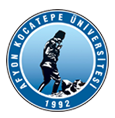Program Learning Outcomes (PLOs)
Graduates of the MA in ELT program will be able to:
-
Demonstrate advanced knowledge of ELT theories, teaching approaches, and applied linguistics domains.
-
Critically evaluate and conduct research in language education, applying both qualitative and quantitative methodologies.
-
Integrate insights from psycholinguistics, instructed SLA, pragmatics, and corpus studies into effective teaching practices.
-
Employ principles of ethics, fairness, and reliability in language testing and assessment.
-
Adapt teaching to individual learner differences in diverse educational and cultural contexts.
-
Utilize technology-enhanced learning tools and resources to design and implement innovative language teaching practices.
-
Engage in reflective practice and contribute to professional development communities in ELT.
-
Communicate scholarly findings effectively through academic writing and presentations at national and international levels.
-
Exhibit intercultural sensitivity and contribute to inclusive, learner-centered language education.
-
Pursue lifelong learning and doctoral-level studies to contribute to the advancement of the ELT field.
Program Learning Outcomes (PLOs) Aligned with Bologna / TYYÇ Level 7
| Category | Descriptor (Level 7) | Program Learning Outcomes (PLOs) |
|---|---|---|
| Knowledge | Has advanced theoretical and practical knowledge supported by textbooks, application tools, and other scientific resources at the level of expertise in a field. | 1. Demonstrates advanced knowledge of ELT theories, teaching approaches, and applied linguistics. 2. Explains key concepts from psycholinguistics, instructed SLA, pragmatics, and corpus linguistics, and relates them to ELT practice. 3. Identifies ethical principles in research and assessment in ELT. |
| Skills | Uses advanced theoretical and practical knowledge acquired in the field. Carries out studies requiring expertise independently. Uses research methods and techniques, and interprets data. |
4. Designs and conducts independent research in ELT using qualitative, quantitative, or mixed methods. 5. Critically analyzes and evaluates research studies in the field. 6. Applies corpus tools, technology-enhanced language learning tools, and testing techniques to classroom contexts. |
| Competence – Autonomy & Responsibility | Takes responsibility in the field of study, develops new strategic approaches, and solves complex problems. | 7. Designs effective language teaching and assessment practices adapted to individual differences and diverse learner needs. 8. Develops innovative and research-informed solutions for complex language teaching problems. |
| Competence – Learning to Learn | Evaluates knowledge and skills with a critical approach and directs own learning. | 9. Demonstrates reflective teaching and research practices to foster continuous professional development. 10. Pursues lifelong learning and prepares for doctoral-level studies. |
| Competence – Communication & Social Competence | Transfers current developments and own studies to groups in and outside the field using written, oral, and visual communication tools. Communicates in a foreign language at least at the European Language Portfolio C1 level. |
11. Presents research findings effectively in national and international academic contexts. 12. Collaborates with peers and experts across disciplines and cultures, demonstrating intercultural competence. |
| Competence – Field-specific / Professional Competence | Considers social, scientific, cultural, and ethical values during the collection, interpretation, and dissemination of data. | 13. Adheres to ethical standards in all stages of research and professional practice. 14. Contributes to inclusive, learner-centered, and socially responsible ELT practices. |
Note: The program learning objectives have been defined in total as 10. However, during the alignment process with the Bologna Process and TYYÇ (Turkish Higher Education Qualifications Framework) Level 7, some objectives were found to correspond to more than one category and descriptor. Therefore, the originally defined 10 objectives have been divided and presented as 14 learning outcomes in the table.
Last Update: 18.09.2025

